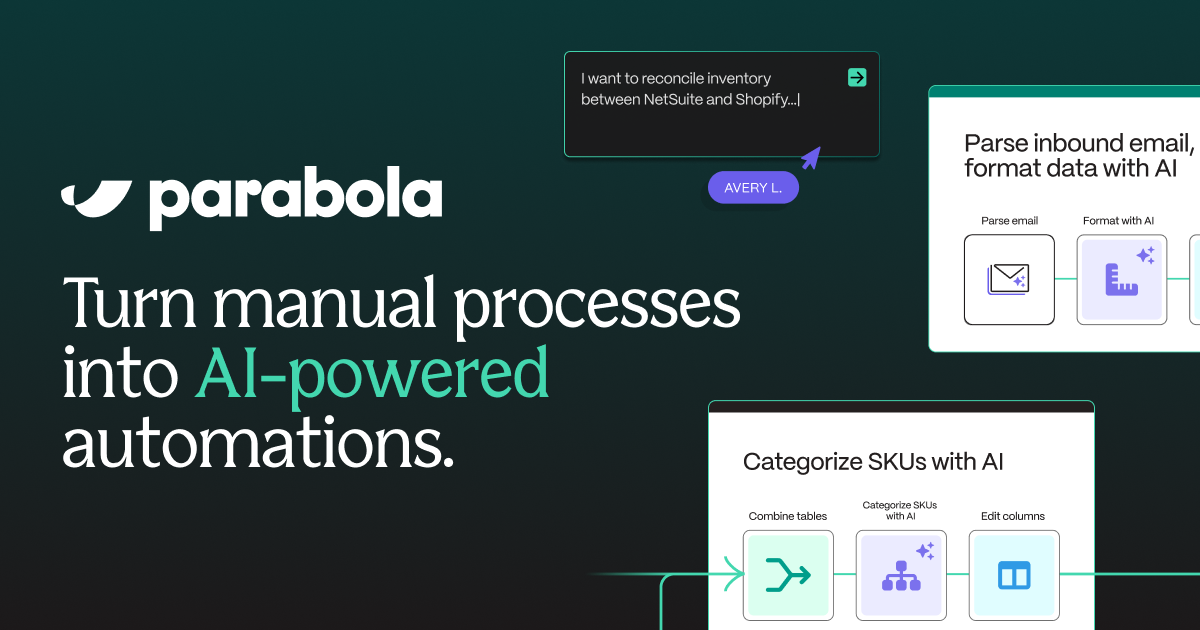Find and Replace Values Within Your CSV Data – Free Template
Find and replace values within your CSV data without writing a single line of code.

Find and replace values within your CSV data without writing a single line of code.









Parabola's ability to digest CSVs allows you to automate your data cleaning and standardization processes with ease. Here's why this combination is powerful:
In Parabola, retrieving data from CSV files is straightforward and flexible. The platform automatically handles different CSV formats and allows you to import data from various sources, including cloud storage and local files.
The find and replace functionality in Parabola allows you to make systematic changes to your data using simple rules. This powerful feature can transform your data according to your specific needs without requiring complex formulas or coding.
When dealing with user-entered company names, you might have variations like "IBM", "I.B.M.", and "International Business Machines." Using find and replace, you can standardize these entries to a single format across your database.
Customer phone numbers often come in various formats. You can use find and replace to standardize all phone numbers to a consistent format, such as (XXX) XXX-XXXX, making your data more professional and easier to work with.
Sometimes CSV exports contain unwanted special characters or formatting. You can use find and replace to remove these characters, ensuring your data is clean and ready for further processing or analysis.
By combining Parabola's Pull from CSV and Find & replace steps, you can create powerful data transformation Flows that automatically clean and standardize your HubSpot data. This automation saves time, reduces errors, and ensures consistency across your data operations.








Request a demo and see how Parabola can automate
your most manual SOPs.